News & Articles
Browse all content by date.
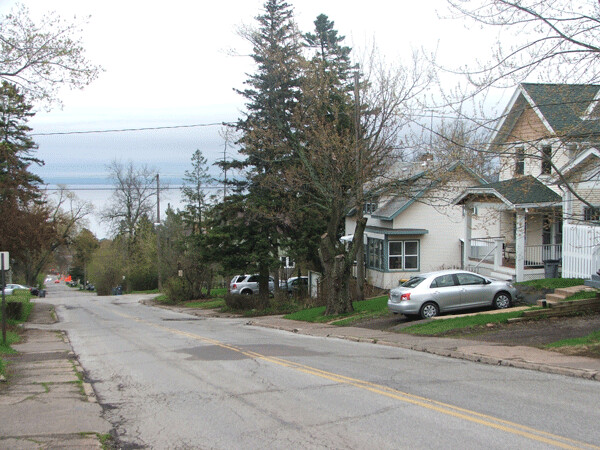
Front yard parking
On June 1, the city will begin enforcement of their front yard parking ban in selected neighborhoods. The enforcement has been planned since last August, when the city and police department first announced how they planned to address the many complaints they received from homeowners in neighborhoods around UMD and the College of St. Scholastica (though, as I reported in a previous column, no actual record of these complaints exists). I recently found out that the enforcement area will include the neighborhood of 10th Avenue East as well. Each car parked in a front yard in those neighborhoods will receive a $24 ticket, and the owner of the property where the car is parked will receive a $200 administrative citation.
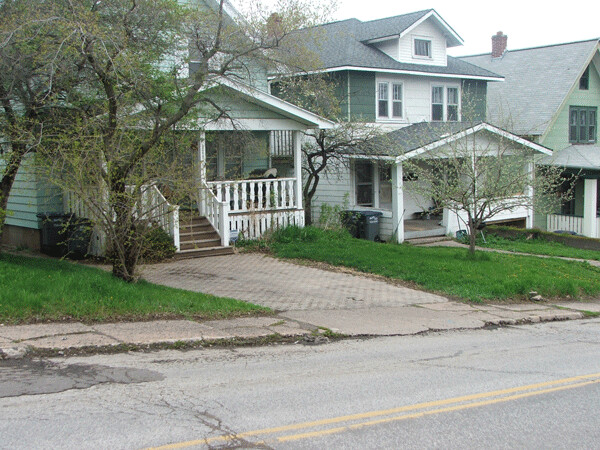
Presumably, the reason 10th Avenue East was included is that there is a lot of front yard parking there. In a quick survey of 10th between Seventh Street and Ninth Street, I counted more than two dozen front yard parking spots. Some were paved, some were graveled, and some were mud. Most were accessed by driving over the curb.
There is no on-street parking on 10th Avenue East, and many homes have no alley access. Without any other good options, residents of 10th—single-family homeowners as well as renters—have been parking in their front yards for years. It is difficult to see where they will park when the crackdown begins. It will have to be on the cross streets, which already have plenty of cars. Some of the residents of 10th Avenue East are elderly, and having to park a block away from their homes could present real problems. The absence of convenient parking could affect property values as well.
Undoubtedly, some homeowners will be pleased with the stepped-up enforcement, but it will only make parking issues worse around the colleges. The student population continues to grow, and the number of parking spaces does not. Indeed, the city has lost some parking spaces in recent years due to construction on Woodland Avenue and Fourth Street. With front yard parking now being eliminated, students will have no choice but to start parking in the treetops.
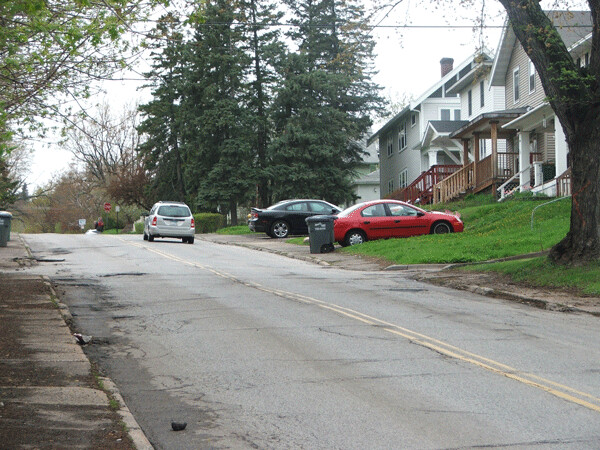
Backyard parking
As I reported in my last column, the city is also considering changing the regulations to require that backyard parking spots be paved. The Planning Commission recommended approval of the change on April 25. The city council will be discussing the issue at a Committee of the Whole meeting on May 22. Though the rule would theoretically apply to all residents, in practice the city would only enforce it if (1) they received a complaint; or (2) they discovered an unpaved parking spot during a routine safety inspection of a rental property.
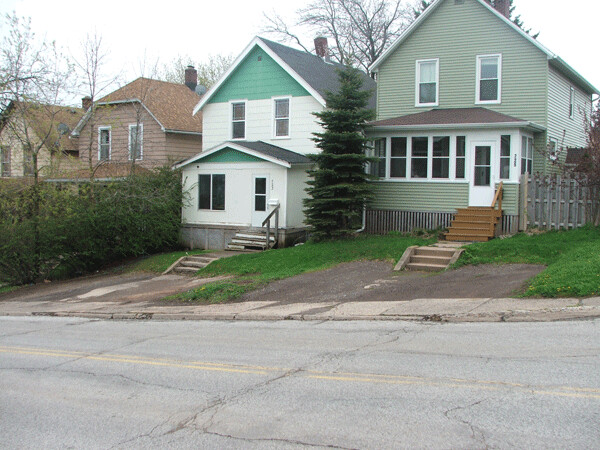
The obvious discriminatory nature of such a policy has landlords concerned. On May 12, Barbara Montee, president of the Duluth Landlords Association, emailed the city council pictures of unpaved city alleys with deeply eroded ruts. “The city has many alleys contributing to stormwater runoff,” she wrote. “This seems to be a confusing message to send to landlords: ‘Do as I say, not as I do.’”
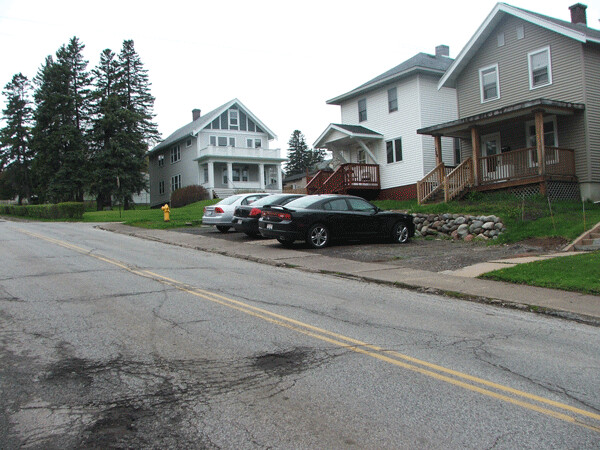
The DLA has suggested that, rather than requiring backyard parking spaces be paved, the city require that the spaces be graveled and graded level, so as to reduce runoff velocity and erosion.
The issue of paved backyard parking has so far received no coverage in the media (besides my article). This will probably change after the Committee of the Whole meeting. As unpaved backyard parking spots are scattered prolifically throughout the city, the issue will undoubtedly generate a lot of concern and debate.
Businesses in churches
In January, I reported how local commercial businesses had secured an unfair market advantage over their competition by renting space from churches. Because churches are exempt from paying property taxes under state and federal law, they are in a position to lease out their facilities to businesses at a lower rate than commercial properties. In theory, they are supposed to pay property tax on the portion of the property being leased, but in practice they do not. Additionally, the businesses I noted—a yoga studio and jam-making operation among them—are located in residential areas and are therefore in violation of city zoning codes.
When I originally reported on this, County Assessor Dave Sipila told me that the taxes on businesses in churches might not necessarily show up online, because the city would assess the business directly rather than the church. When I did a data request for businesses in churches that were assessed separately, I was given a document filled with gibberish which had nothing to do with my request. Since then, I have concluded that the county does not maintain a list of businesses operating in churches, nor do they collect taxes from such businesses.
On May 16, I spoke with County Recorder Mark Monacelli. He told me that in response to my article the county had mailed out letters to 24 churches, including the ones I mentioned, asking them to describe the activities taking place on their premises. Thus far, they had received 16 responses, though he had not yet had a chance to read them. If it was determined that a business in a church was not directly related to the church’s mission, county officials would pay a site visit to determine what percentage of the church property was being used commercially and assess tax on that percentage.
Monacelli cautioned me that I should not expect this to be accomplished tomorrow. “We’re in the process of looking at all of these, but that happens when we have time available, and right now we’re short-staffed….We’re looking at all of it, and plan to do so in the next year and make any additions and corrections that are required, but it all takes time.” Nevertheless, it does appear that the county has begun taking action.
The city, on the other hand, has not—at least not directly. When I called Community Planning Manager Adam Fulton on May 15 to find out what had been done about the zoning violations I reported in January, he told me that nothing had been done. He said they hoped to address the issue in the Comprehensive Plan update they were working on, perhaps by relaxing the zoning code to allow certain types of businesses in residential areas, but because nobody had filed a formal complaint, they would not be enforcing the zoning code.
“But you guys already know about it,” I said.
“Well, I mean, I know people are driving 60 out on the freeway, too, but I don’t get after the cops to pick up everybody who’s over 55 miles an hour,” Fulton responded. “I mean, it’s hard. It becomes a matter of resources….I mean, if you want me to treat your article as a complaint...”
Having been raised not to complain about things, I declined the invitation. The take-away message is that you are free to ignore the city’s zoning code as long as nobody complains about what you’re doing.
Berwick Court vacation rental
Three months ago, I reported on the Planning Commission’s denial of a vacation rental permit for an applicant on Berwick Court, which is located near UMD. What made the denial unusual was that the application met all the criteria set forth by the city and the Planning Commission rarely denied such a permit. The difference this time was that angry Berwick Court neighbors packed the chambers to object to the permit, saying it would damage the unique character of their neighborhood. Crime, litter, increased traffic and other concerns were cited. One neighbor, Patricia Francisco, declared herself “appalled” that the city would even consider allowing a vacation rental in a neighborhood as special as Berwick Court. Another voiced his fear that a mobile home might park there.
Two planning commissioners later admitted that they had been influenced by the level of public outrage, and acknowledged that their votes were unfair to the applicant. After my article appeared noting this, the Planning Commission brought the resolution back for reconsideration and reversed itself on March 14, this time voting 6-0 to recommend approval. Their recommendation then went to the city council for a final vote.
Naturally, Berwick Court residents were not happy. A number of them emailed the council, reiterating their fears of general apocalypse. Patricia Francisco in particular was upset. In an April 10 email, she fretted about “party noise, garbage cans left out for days attracting critters, front yards turned into parking lots, deteriorating dwellings [and] increased car and camper traffic mixing with the pedestrian traffic on these streets.” She wrapped up by attacking me.
“A recent Duluth publication painted the Berwick neighborhood as elitist, discriminatory, and deserving of special treatment. It is anything but that, and that’s not what this is about. And on a personal note, I will match this family’s track record of decades-long work for non-elitist causes promoting inclusiveness and fair play in the City of Duluth with that of the writer’s.”
On April 10, despite the neighbors’ concerns and Patricia’s shimmering halo, the city council voted 8-1 to approve the vacation rental permit, adding a condition that the applicants build a screening fence between their property and the neighboring one.
So far, no disasters involving mobile homes have been reported.
Local child wins prize
The Duluth Public Library recently held a contest where children were asked to guess the number of animal crackers in a jar. Local sixth-grader Walter Ramos guessed 647 animal crackers. There were 648. Despite his wrong answer, Mr. Ramos received a $5 gift certificate to Barnes and Noble as a prize. When asked what he intended to buy with his winnings, he said, “I don’t know yet. I don’t know what books are there.” Reporters waited expectantly for him to thank his parents for an excellent upbringing, but such praise was not forthcoming.
| Tweet |

